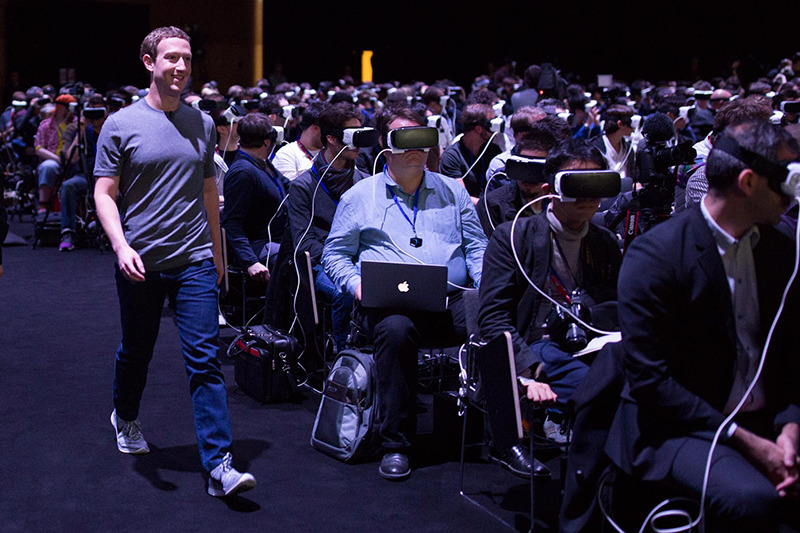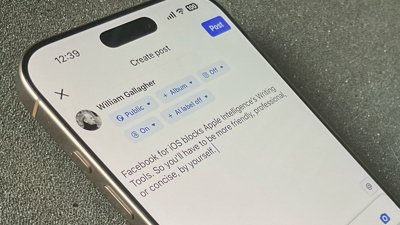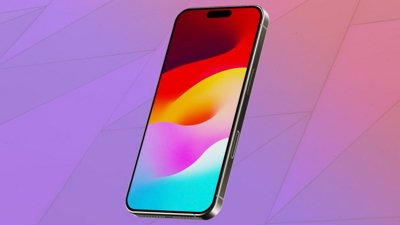Facebook CEO Mark Zuckerberg added his name to the list of tech leaders rallying behind Apple in its encryption debate with the Justice Department, but a poll conducted by the Pew Research Center suggests the FBI is winning over public sentiment.
Speaking at Mobile World Congress in Barcelona, Spain, on Monday, Zuckerberg said Facebook believes in encryption, adding that software backdoors are not effective and ethically dubious, reports Re/code.
"We're sympathetic with Apple on this one," Zuckerberg said. "I expect it's not the right thing to try to block that from the mainstream products people want to use. And I think it's not going to be the right regulatory or economic policy to put in place."
While siding with Apple on the overarching issue of strong encryption, the social media guru hedged his bets and pointed out Facebook does its part by complying with warranted law enforcement data requests. As Apple is currently locking horns with the DOJ over an iPhone tied to last year's San Bernardino shooting, Zuckerberg's comments on Monday had bearing on the government's anti-terrorism cybersecurity campaign.
"We certainly do have very strong policies on this that if there's any content that's promoting terrorism or sympathizing with ISIS or anything like that, we'll ... get those people off the service. We don't want people that are doing that stuff on Facebook," he said.
Being the world's foremost social network, Facebook has obvious skin in the game when it comes to protecting its users' data. Aside from user-based targeted advertising, the company's WhatsApp messaging service uses end-to-end encryption technology similar to Apple's iMessage, meaning it might see similar government pressure if the DOJ is able to set precedent with Apple.
Zuckerberg's appraisal of the developing situation comes days after other influential tech personalities like Twitter CEO Jack Dorsey, Google CEO Sundar Pichai and entrepreneur Mark Cuban voiced their support of Apple's fight for encryption. However, the Justice Department is waging its own PR battle for favorable public opinion, and it appears to be going well.
In a Pew Research Center poll conducted late last week, 51 percent of respondents said Apple should "unlock the iPhone" used by San Bernardino terrorist Syed Rizwan Farook, while 38 percent said the company "should not unlock" the handset. The remaining 11 percent did not offer an opinion. The exact questions posed to poll takers was not revealed, but it seems U.S. sentiment is, for the most part, in agreement with the DOJ.
It should be noted, however, that Apple is not being asked to unlock the iPhone 5c, but rather provide a software workaround that bypasses a passcode attempt counter, thereby allowing FBI agents to conduct a brute force attack on the device. The company is not being asked to unlock a single phone, but rather supply a proof-of-concept tool capable of breaking a major facet of iOS encryption.
The FBI, as well as the White House, has stated on numerous occasions that the Apple-created forensic tool would only be used to crack Farook's iPhone 5c. On the other hand, security experts and Apple itself claim the creation of such a bypass inherently weakens iOS encryption, threatening millions of iOS devices.
 Mikey Campbell
Mikey Campbell

-m.jpg)






 William Gallagher
William Gallagher

 Andrew O'Hara
Andrew O'Hara
 Wesley Hilliard
Wesley Hilliard

 Malcolm Owen
Malcolm Owen
 Marko Zivkovic
Marko Zivkovic





-m.jpg)




75 Comments
""We certainly do have very strong policies on this that if there's any content that's promoting terrorism or sympathizing with ISIS or anything like that, we'll ... get those people off the service. We don't want people that are doing that stuff on Facebook," he said." Hey Zuck, there's a difference between getting into a cloud based service, and a physical device with local, private, encrypted content.
Well the public is dumb and easily persuaded. Welcome to the Idiocracy.
It is all about fear that has worked with humans. The Fear of Unknown is the Cornerstone of faith/religion. So, I am sure part of public who is uninformed about the future consequences will take FBI side. They will follow The Road Taken!!! Public opinion survey outcome depends on how you ask questions ?
IMO, if Apple is physically capable of doing something to help, they should do it.
Oh, and Apple should make devices uncrackable to themselves in the first place, otherwise it is just security through obscurity.
Apple will win if they win and win if they lose.